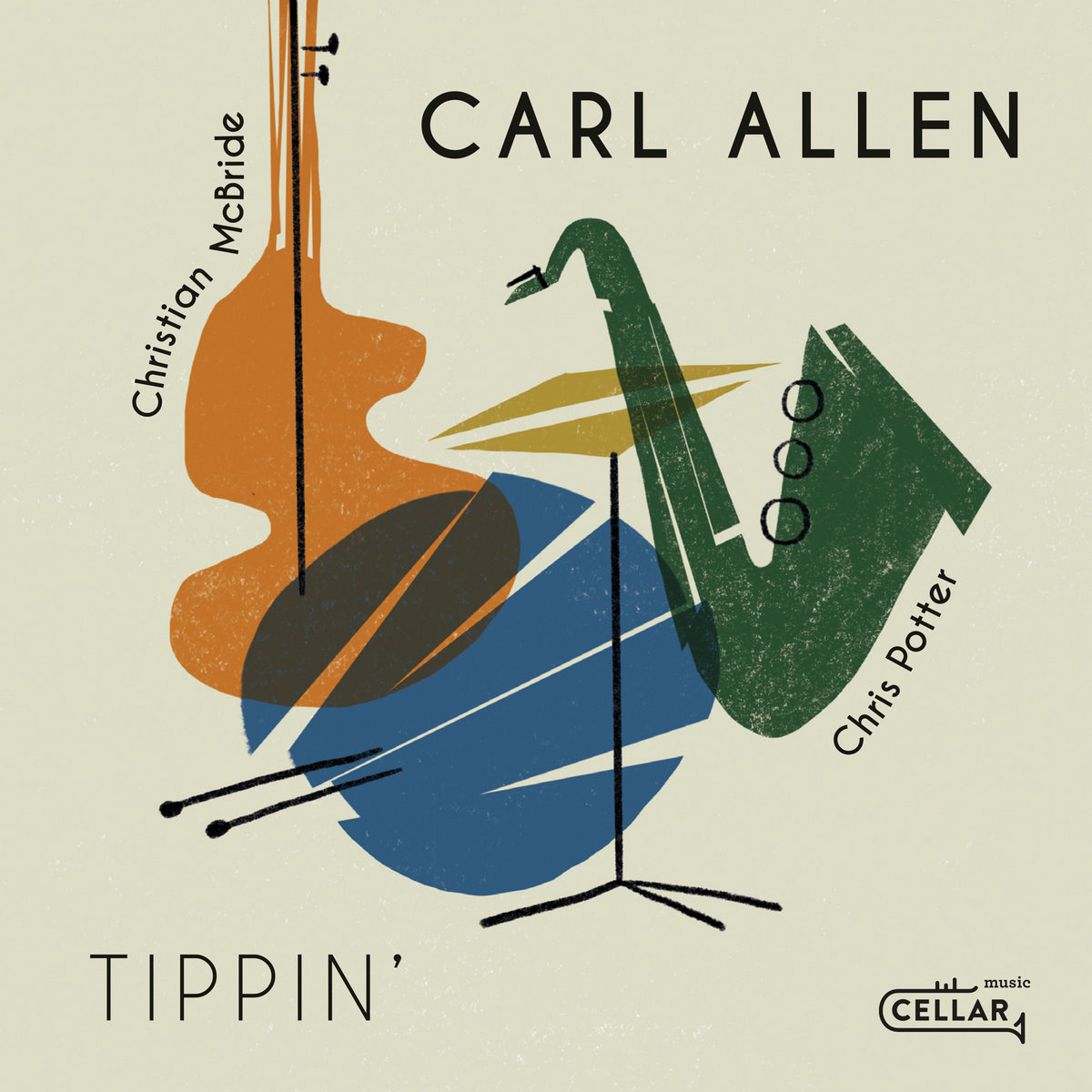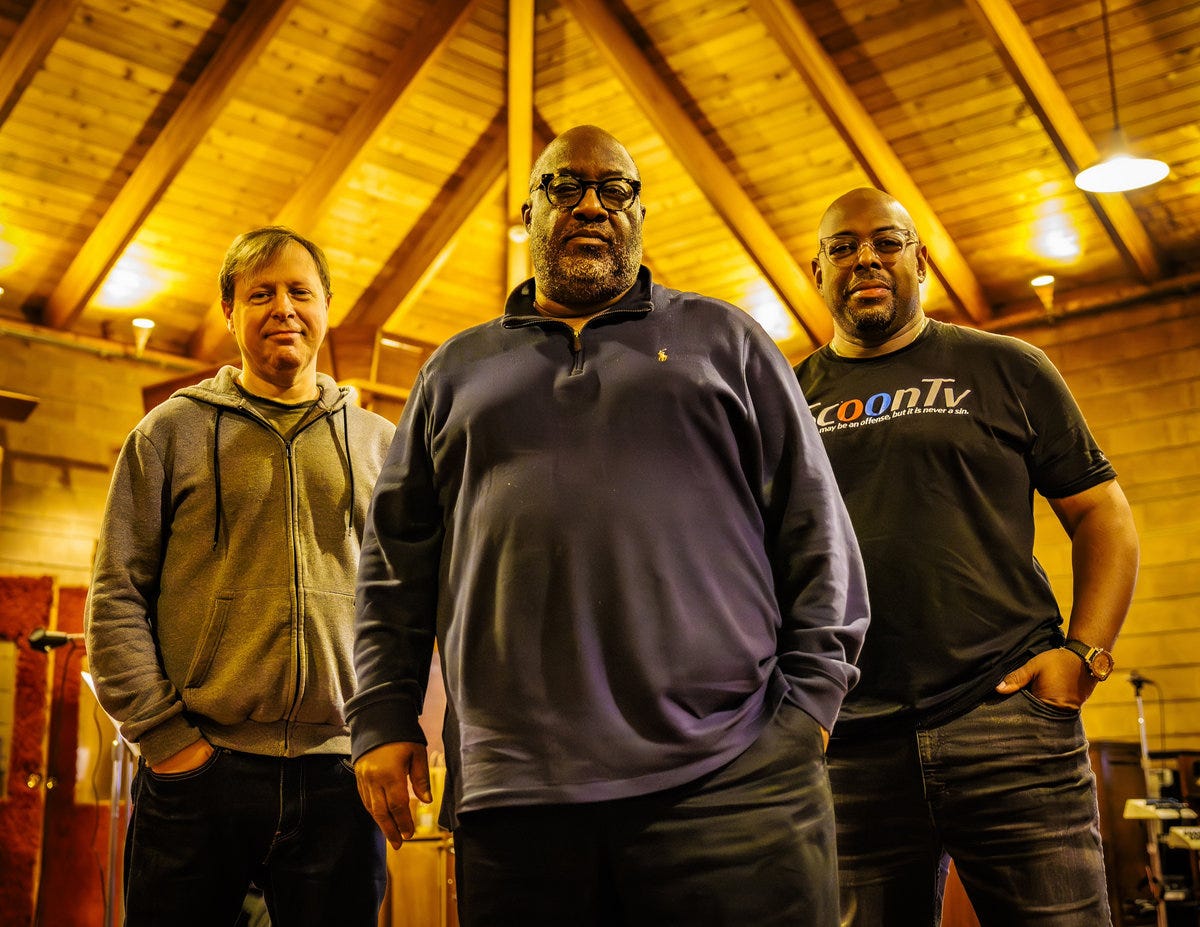I got an email directly from Executive Producer Cory Weeds, which was nice. Well, I mean, it was from the Cellar Music label. I don’t know Cory Weeds at all. I was glad he recommended this new album, because much of where I get informed about new jazz is through Bandcamp artist and label newsletter subscriptions. That can be dangerous. I might buy it all! But I don’t, though I did spring on Tippin’, and I elected to go just with the digital package this time. I often buy the CD+digital package, but shipping was almost as much as the CD was. And maybe I got spooked because the cost was in CAD not USD.
Chris Potter performs wildly (terrifically!) on this album, with track 2, “Happy Times,” being a splurge of tenor sax notes. Christian McBride really walks the bass up and around the block, and bandleader Carl Allen (“friend and brother” to McBride) must have a similar love for a good ride cymbal, to the love I have for it. The volumes of the instruments seem perfectly balanced, with all of them getting an equal share of the mix. Nothing sticks out as being too loud or too quiet. Usually, my favorite jazz albums are live trio albums, but a well-produced trio studio date, like Tippin’, can whip me up into a nice frenzy of joyful listening.
One thing I love about albums led by drummers is that it helps me see the drums as the crucial jazz instruments they are. If the drums aren’t interesting to me, an entire album will have to have something else really special to make up for it. For example, I don’t recall any outstanding riffs from The Birthday Massacre’s Fascination, but I love that album. It has that special something that seems to run like a thread through much of my favorite music. Tippin’ has that something, and it has really awesome drums.
Track three, “A Morning Story,” is a slow stroll around the park, with McBride really opening up on the slow improvisations on bass. Now and then he’ll linger at the lakeside, studying a blackbird perched on a cattail or something. Track four, “Hidden Agenda,” features Potter on bass clarinet, one of my favorite jazz instruments, which I really discovered by hearing Ballads for Bass Clarinet, by David Murray. He really lets it rip on his solos. The bass clarinet is a much more expressive instrument, in the capable hands of a David Murray or a Chris Potter, than I had previously thought the clarinet family to contain.
McBride’s bass reaches deep down on “Hidden Agenda.” One of my favorite, perhaps my very favorite, performances by McBride is on Camp Meeting, with drummer Jack DeJohnette and pianist Bruce Hornsby (of Grateful Dead days). On “Hidden Agenda,” McBride plucks fifths (I think), punctuating the measures with a low tone that is rich and deep. This is one of my favorite tones that McBride has used. The following track, “Alter Ego,” features more intricate work by McBride, and sweet, melodic flurries of soprano sax by Potter. It swings, and so I’m swaying on the couch, my head rocking side to side, with the dance of Allen’s sticks on the cymbals and snare. A light rimshot carries through the whole track, setting up a hypnotic tapping. “The Inchworm” is a rollicking piece, with outstanding flourishes of soprano sax solo, and intricate, fast stick work by Allen. McBride lays down a compelling groove without getting fancy.
“L’s Bop” is a place McBride does get fancy. He and the band change up the beat so many times, it keeps every moment fresh. Potter is back on tenor sax. Allen tosses in a lot of snare taps, and he even uses the center of the ride cymbal and gets something like what I consider to be Jack DeJohnette’s signature cymbal sound, the pinging bell-like quality of a sharply struck ride cymbal, the stick landing right on the central bulge.
“Song for Abdullah” is a slow piece in honor of pianist Abdullah Ibrahim. John Lee joins the otherwise chordless trio on piano. Potter plays bass clarinet, and McBride and Lee sync up, while Allen gives the tom-toms some tumbling. I am guessing “Roy’s Joy” is probably a tribute to Roy Hargrove. Tracks eleven and twelve, “They Say It’s Wonderful” and “Put on a Happy Face” are standards, and the trio gives them a good playing.
It’s a good album of good jazz. Check it out. And happy listening!






